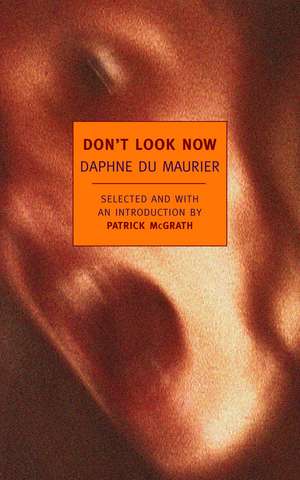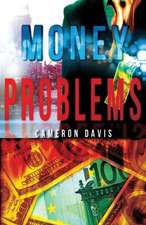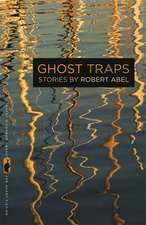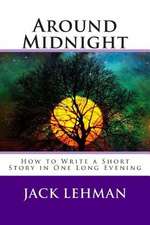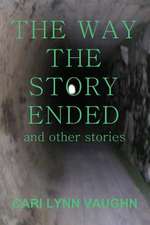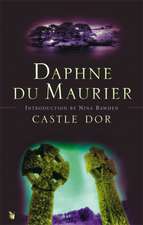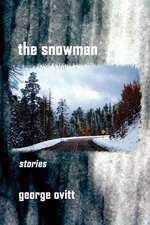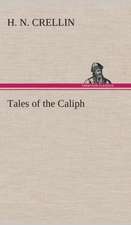Don't Look Now: Stories
Autor Daphne DuMaurier Patrick McGrathen Limba Engleză Paperback – 30 sep 2008
Daphne du Maurier wrote some of the most compelling and creepy novels of the twentieth century. In books like Rebecca, My Cousin Rachel, and Jamaica Inn she transformed the small dramas of everyday life—love, grief, jealousy—into the stuff of nightmares. Less known, though no less powerful, are her short stories, in which she gave free rein to her imagination in narratives of unflagging suspense.
Patrick McGrath’s revelatory new selection of du Maurier’s stories shows her at her most chilling and most psychologically astute: a dead child reappears in the alleyways of Venice; routine eye surgery reveals the beast within to a meek housewife; nature revolts against man’s abuse by turning a benign species into an annihilating force; a dalliance with a beautiful stranger offers something more dangerous than a broken heart. McGrath draws on the whole of du Maurier’s long career and includes surprising discoveries together with famous stories like “The Birds.” Don’t Look Now is a perfect introduction to a peerless storyteller.
Preț: 101.82 lei
Nou
Puncte Express: 153
Preț estimativ în valută:
19.49€ • 20.27$ • 16.09£
19.49€ • 20.27$ • 16.09£
Carte disponibilă
Livrare economică 24 martie-07 aprilie
Preluare comenzi: 021 569.72.76
Specificații
ISBN-13: 9781590172889
ISBN-10: 1590172884
Pagini: 346
Dimensiuni: 128 x 202 x 20 mm
Greutate: 0.37 kg
Editura: NEW YORK REVIEW OF BOOKS
ISBN-10: 1590172884
Pagini: 346
Dimensiuni: 128 x 202 x 20 mm
Greutate: 0.37 kg
Editura: NEW YORK REVIEW OF BOOKS
Notă biografică
DAPHNE DU MAURIER (1907-1989)was the daughter of the legendary actor-manager Gerald du Maurier and granddaughter of George du Maurier, the author of the vastly successful late-Victorian novel Trilby and cartoonist for the magazine Punch. She grew up in London and Cornwall, where she would settle as an adult. Du Maurier published her first novel when she was twenty-three and would go on to write seventeen more, many of them best-sellers, including My Cousin Rachel, Jamaica Inn, and Rebecca, one of the most popular novels of the twentieth century. In addition to her fiction, du Maurier wrote several family biographies, a biography of Branwell Brontë, a study of Cornwall, two plays, and a good deal of journalism. She was married to Tommy “Boy” Browning and was the mother of three children.
PATRICK MCGRATH is the author of two story collections and seven novels, including Port Mungo, Dr. Haggard’s Disease, Spider, (which he also adapted for the screen), and most recently, Trauma. Martha Peake: A Novel of the Revolution won Italy’s Premio Flaiano Prize, and his 1996 novel, Asylum, was short-listed for both the Whitbread and the Guardianfiction prizes. McGrath is the co-editor of a collection of short fiction, The New Gothic. He lives in New York.
PATRICK MCGRATH is the author of two story collections and seven novels, including Port Mungo, Dr. Haggard’s Disease, Spider, (which he also adapted for the screen), and most recently, Trauma. Martha Peake: A Novel of the Revolution won Italy’s Premio Flaiano Prize, and his 1996 novel, Asylum, was short-listed for both the Whitbread and the Guardianfiction prizes. McGrath is the co-editor of a collection of short fiction, The New Gothic. He lives in New York.
Recenzii
"This excellent collection of [Du Maurier]'s out-of-print and previously unpublished tales is recommended for all collections." --Library Journal
"That whooshing sound you hear is your mind being sucked into the brilliant black depths of Daphne du Maurier's Gothic imagination, the instant you begin reading the eponymous first story in Don't Look Now. ... Novelist Patrick McGrath's introduction reacquaints us with the intense, eccentric, psychologically deft du Maurier, a master storyteller with a touch as smooth as a raven's wing." --O, the Oprah Magazine
"This author was unique in how she set people's attempts to be civilized and fair against the ravages of nature and the deceptions of intimacy--both of which can attack from within as well as without." --Louisville Eccentric Observer (LEO Weekly)
"This new collection of her macabre tales, which features many unavailable for years, is an ideal treat for Halloween." --Thicket
Du Maurier "was indeed a serious writer, a brilliant innovative practitioner of her craft, as these stories consistently demonstrate...Readers of these wonderful stories will go to places and feelings they never dreamed of - all because Daphne du Maurier possessed such an amazing imagination and such a capacity to make it all seem credible in her sturdy prose." --Washington Times
"'Don't Look Now' has remarkable sexual tension and is reminiscent of Patricia Highsmith in some ways, while 'The Blue Lenses' has a central idea that's one of the most original and scary you'll ever come across. She's a writer we think we know but don't really -- hugely underrated." --Los Angeles Times
"Don't Look Now is a stunning collection of du Maurier's particular brand of intricately plotted story. The mesmerizing title story was faithfully adapted by Nicholas Roeg, and the volume also includes the creepily riveting tale "The Birds,"... filmed by Alfred Hitchcock." --The Atlantic
“Daphne du Maurier's genius lay in her plots, which she spun with astounding originality and ease. Her novel Rebecca, her short stories ‘The Birds,’ ‘Don't Look Now,’ ‘The Blue Lenses’ and dozens more have an effectiveness that make them seem almost traditional, belonging not to any one author but to the imagination of the world.”–Albert Manguel
"Her tales of the macabre are among the best of their genre." –Michael Dirda
“Daphne du Maurier’s writing deserves a fresh look. She has long enjoyed national and international fame…and remains one of Britain’s most popular novelists, her books translated into many languages and read all over the world. The renowned film version of her stories…have brought her a global reputation, which is continually enhanced by television, radio and theatre adaptations. However, her status as a household name has sometimes led to patronizing commentary, the tag of ‘romantic novelist’ repeated relentlessly…This is no writer of idealistic and optimistic romance; from her earliest years, with acute observation and irony, Daphne du Maurier plumbed the depths of human betrayal, exploitation and despair, while at the same time evoking life’s unpredictable moments of intense pleasure and desire, often with a wry wit.” –Helen Taylor
“A crackerjack raconteuse…she takes the reader by the icy hand and leads him behind the curtain to view the characters on their ways to their own breaking points.” –The Saturday Review
“When the sky turns to slate and a bitter wind lashes the deserted Piazza San Marco, I long to sink into a corner of the Caffe Florian with 'Don't Look Now' and lose myself in Daphne du Maurier's bleak views of the city as a maze of sinister alleys and shuttered houses and bridges that lead nowhere.” –Marilyn Stasio, The New York Times
“Du Maurier emerges as a unique and complex writer whose mature works proved so disturbing that they've either been ignored or distorted beyond recognition…she's a complex, powerful, unique writer, so unorthodox that no critical tradition, from formalism to feminism, can digest her.” –Carol LeMasters, Harvard Gay and Lesbian Review
“Du Maurier served up more sinister fare than the Brontës…” –The New York Times Book Review
“Du Maurier has no equal” –Daily Telegraph (London)
"That whooshing sound you hear is your mind being sucked into the brilliant black depths of Daphne du Maurier's Gothic imagination, the instant you begin reading the eponymous first story in Don't Look Now. ... Novelist Patrick McGrath's introduction reacquaints us with the intense, eccentric, psychologically deft du Maurier, a master storyteller with a touch as smooth as a raven's wing." --O, the Oprah Magazine
"This author was unique in how she set people's attempts to be civilized and fair against the ravages of nature and the deceptions of intimacy--both of which can attack from within as well as without." --Louisville Eccentric Observer (LEO Weekly)
"This new collection of her macabre tales, which features many unavailable for years, is an ideal treat for Halloween." --Thicket
Du Maurier "was indeed a serious writer, a brilliant innovative practitioner of her craft, as these stories consistently demonstrate...Readers of these wonderful stories will go to places and feelings they never dreamed of - all because Daphne du Maurier possessed such an amazing imagination and such a capacity to make it all seem credible in her sturdy prose." --Washington Times
"'Don't Look Now' has remarkable sexual tension and is reminiscent of Patricia Highsmith in some ways, while 'The Blue Lenses' has a central idea that's one of the most original and scary you'll ever come across. She's a writer we think we know but don't really -- hugely underrated." --Los Angeles Times
"Don't Look Now is a stunning collection of du Maurier's particular brand of intricately plotted story. The mesmerizing title story was faithfully adapted by Nicholas Roeg, and the volume also includes the creepily riveting tale "The Birds,"... filmed by Alfred Hitchcock." --The Atlantic
“Daphne du Maurier's genius lay in her plots, which she spun with astounding originality and ease. Her novel Rebecca, her short stories ‘The Birds,’ ‘Don't Look Now,’ ‘The Blue Lenses’ and dozens more have an effectiveness that make them seem almost traditional, belonging not to any one author but to the imagination of the world.”–Albert Manguel
"Her tales of the macabre are among the best of their genre." –Michael Dirda
“Daphne du Maurier’s writing deserves a fresh look. She has long enjoyed national and international fame…and remains one of Britain’s most popular novelists, her books translated into many languages and read all over the world. The renowned film version of her stories…have brought her a global reputation, which is continually enhanced by television, radio and theatre adaptations. However, her status as a household name has sometimes led to patronizing commentary, the tag of ‘romantic novelist’ repeated relentlessly…This is no writer of idealistic and optimistic romance; from her earliest years, with acute observation and irony, Daphne du Maurier plumbed the depths of human betrayal, exploitation and despair, while at the same time evoking life’s unpredictable moments of intense pleasure and desire, often with a wry wit.” –Helen Taylor
“A crackerjack raconteuse…she takes the reader by the icy hand and leads him behind the curtain to view the characters on their ways to their own breaking points.” –The Saturday Review
“When the sky turns to slate and a bitter wind lashes the deserted Piazza San Marco, I long to sink into a corner of the Caffe Florian with 'Don't Look Now' and lose myself in Daphne du Maurier's bleak views of the city as a maze of sinister alleys and shuttered houses and bridges that lead nowhere.” –Marilyn Stasio, The New York Times
“Du Maurier emerges as a unique and complex writer whose mature works proved so disturbing that they've either been ignored or distorted beyond recognition…she's a complex, powerful, unique writer, so unorthodox that no critical tradition, from formalism to feminism, can digest her.” –Carol LeMasters, Harvard Gay and Lesbian Review
“Du Maurier served up more sinister fare than the Brontës…” –The New York Times Book Review
“Du Maurier has no equal” –Daily Telegraph (London)
